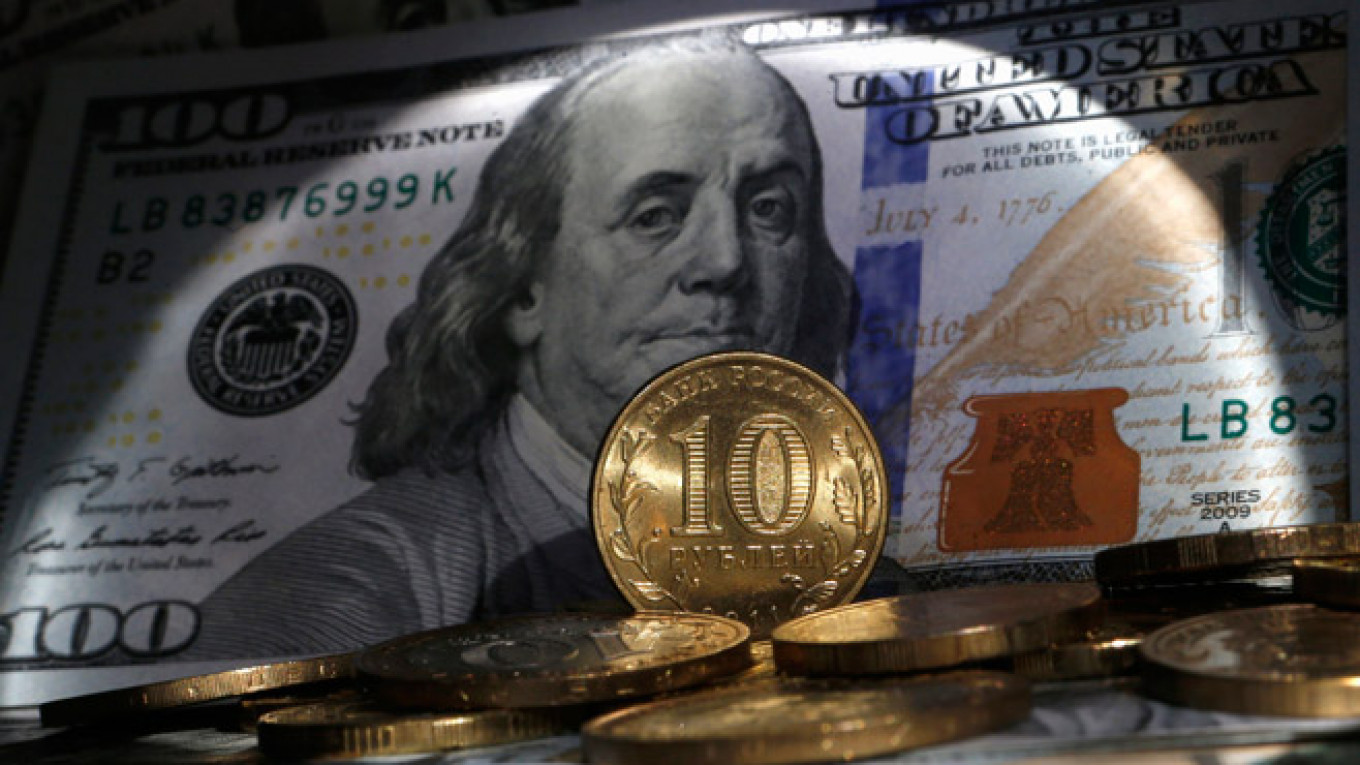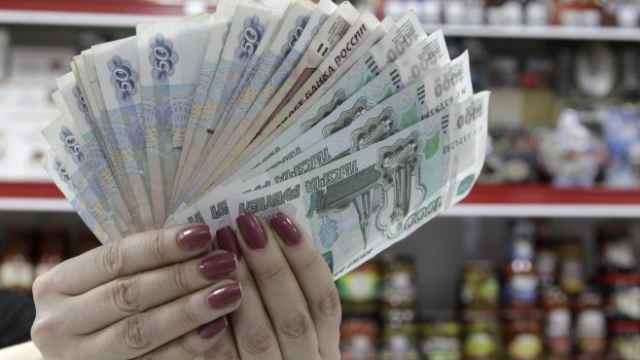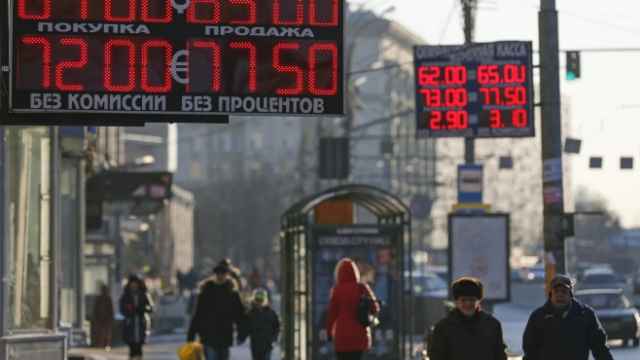Rating agency Fitch on Friday downgraded Russia's credit rating to one notch above junk status, warning that oil price falls and Western sanctions could contract the country's economy by 4 percent this year and force the government to pour cash into Russia's buckling banking system.
Coming on the weekend before Russians return to work after the long New Year's holiday, the downgrade to "BBB minus" from "BBB" opens a year in which Russia will struggle to avoid losing investment-grade status — which would likely trigger a new exodus of capital from the country.
More than $100 billion fled Russia last year as a halving in the price of oil, the country's major export, and Western sanctions on Moscow over Ukraine cut economic growth to about 0.6 percent and hacked almost 50 percent off the value of the ruble currency versus the U.S. dollar.
Fitch said Russia's outlook was negative, signaling that a further downgrade is likely. The agency based its assessment on an average oil price of $70 per barrel. On Friday global benchmark Brent oil traded at $50 per barrel.
The other big international raters also hold a dim view of Russian debt: Standard & Poor's last month put Russia on CreditWatch Negative, indicating a 50 percent chance of a downgrade within 90 days that would strip Russia of the investor grade it has held since 2004. Moody's, which puts Russia's credit rating two notches above junk, also has a negative outlook.
"A downgrade to junk for Russia … is a foregone conclusion," Hung Tran, executive managing director at global industry body, the Institute of International Finance, told Reuters.
A loss of investor-grade status would trigger automatic sell-offs by investors with conservative risk limits and see Russian securities ejected from some international indexes.
Russian officials have said the ratings agencies are being unduly negative, with some seeing political motives behind the ratings changes.
Though Russia's public debt is only 12 percent of gross domestic product — low by international standards — Fitch said the state would likely have to divert major resources to support the banking sector, which has been rocked by ruble depreciation, market volatility and a Central Bank attempt to halt the currency's decline by hiking interest rates to 17 percent last month.
Major lenders have already been allocated billions of dollars from Russia's reserves, but "given the pressure on capital ratios and asset quality, the sovereign may have to pay for further bank support," Fitch said.
Russian corporates have some $600 billion in external debt — equivalent to about 30 percent of GDP. Some of these have applied for state help due to sanctions or exorbitant borrowing costs charged by Russia-averse international lenders that look to agency ratings to price risk.
Russia's foreign currency reserves are dwindling at a faster-than-expected pace, Fitch said. Russia spent $120 billion last year — much of it defending the ruble — to leave $390 billion at the year's end, according to Central Bank data. Fitch had forecast year-end reserves of $450 billion.
Russian bond yields and the price of credit default swaps show that markets already see Russian debt as junk. According to Bloomberg, the cost of insuring Russia's bonds against non-repayment for five years jumped 0.92 percent this year to 5.68 percent, making the country's debt the world's fifth-riskiest, above countries such as Lebanon, Egypt and Portugal.
But ratings still count even if they are behind the curve, said Yevgeny Nadorshin, chief economist at Russia's AFK Sistema holding company.
Agencies tend to be conservative so even if Russia's economic situation improves, he said, they will be slow to revisit ratings and flush the poison of negative assessments out of the system.
Contact the authors at [email protected] and [email protected]
A Message from The Moscow Times:
Dear readers,
We are facing unprecedented challenges. Russia's Prosecutor General's Office has designated The Moscow Times as an "undesirable" organization, criminalizing our work and putting our staff at risk of prosecution. This follows our earlier unjust labeling as a "foreign agent."
These actions are direct attempts to silence independent journalism in Russia. The authorities claim our work "discredits the decisions of the Russian leadership." We see things differently: we strive to provide accurate, unbiased reporting on Russia.
We, the journalists of The Moscow Times, refuse to be silenced. But to continue our work, we need your help.
Your support, no matter how small, makes a world of difference. If you can, please support us monthly starting from just $2. It's quick to set up, and every contribution makes a significant impact.
By supporting The Moscow Times, you're defending open, independent journalism in the face of repression. Thank you for standing with us.
Remind me later.






